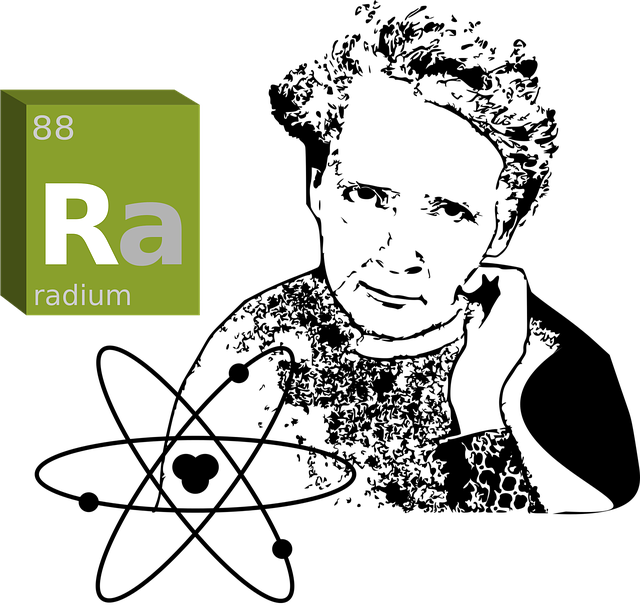By Tim Lambert
Her Early Life
Marie Curie (1867-1934) was a famous Polish scientist. She was born Maria Sklodowska in Warsaw on 7 November 1867. Her father and mother were both teachers. They had 4 other children, all of them older than Maria. She had a brother named Jozef and 3 sisters, Zofia, Bronia, and Helena.
However, Zofia died of typhus in 1874 and her mother died of tuberculosis in 1878. (Both were common diseases in the 19th century).
Maria herself proved to be a very bright child and did very well at school. Unfortunately at that time, women were not allowed to go to University. That meant Maria would have to study abroad. So in 1885, she made an arrangement with her sister Bronia. Maria would work as a governess (teaching a wealthy family’s children in their own home) and she would support Bronia while she studied at University. In turn, when Bronia left and got a job she would support Maria while she went to University.
So Maria worked as a governess until 1891 when she began studying at Sorbonne University in Paris. (Since she was living in France Maria started calling herself by the French version of her name, Marie).
Marie did very well at University and in 1893 she gained a degree in Physics. In 1894 she gained a degree in Maths.
The Great Scientist
In 1894 she met Pierre Curie and she married him in 1895. In 1897 Marie Curie had a daughter called Irene.
Meanwhile, in 1895 a German named Wilhelm Rontgen discovered X-rays. Then in 1896, Antoine Henri Becquerel discovered that uranium gives off mysterious, invisible rays.
In 1897 Marie Curie started investigating uranium. (In 1898 she coined the term radioactive to describe any substance that gave off the mysterious rays). Marie also examined a substance called pitchblende, which she realized is much more radioactive than pure uranium. Marie Curie realized that pitchblende must contain some elements that are much more radioactive than pure uranium.
In 1898 Marie and her husband Pierre isolated an element they called polonium (after Poland). However, they realized there was another element in pitchblende. In December 1898 they isolated radium. In 1903 Marie and Pierre Curie were awarded the Nobel Prize for Physics along with Henri Becquerel. Winning the prize brought them fame.
Unfortunately, Pierre and Marie Curie did not realize that radiation exposure was harming their health. Nevertheless in 1904 Marie Curie had a daughter called Eve.
Sadly in 1906, Pierre was killed by a horse-drawn vehicle. However, after his death, Marie was offered his post as Professor of Physics at Sorbonne University. In 1911 Marie Curie was given the Nobel Prize for Chemistry.

Marie continued to research radium and in 1921 she visited the USA and met President Harding. Marie Curie visited the USA again in 1929. However, her health was failing. Eventually, she was diagnosed with leukemia. Marie Curie died on 4 July 1934. She was 66.